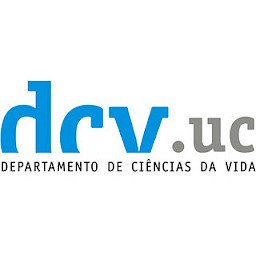Presentation
The master in forensic anthropology was created following the demand of the students. After eight editions of the postgraduation, the masters gives the opportunity to do a research in forensic anthropology for those who want to go further in the field. This master is also characterized for its interdisciplinary nature and for the cooperation with the reality of Legal Medicine and Forensic Anthropology. It is the very first course in this area of expertise in Portugal and one of the few in Europe.
Study Programme
1st YEAR - 1st Semester
| COURSE UNIT TITLE | TYPE | SUBJECT AREA | ECTS |
| Dental Analysis | Compulsory | Forensic Anthropology | 6 |
| History and Evolution of Forensic Anthropology | Compulsory | Forensic Anthropology | 4 |
| Criminal Investigation | Compulsory | Forensic Sciences | 2 |
| Human Osteology | Compulsory | Forensic Anthropology | 6 |
| Biological Profile | Compulsory | Forensic Anthropology | 6 |
| Forensic Taphonomy | Compulsory | Forensic Anthropology | 6 |
1st YEAR - 2nd Semester
| COURSE UNIT TITLE | TYPE | SUBJECT AREA | ECTS |
| Identification in Forensic Anthropology | Compulsory | Forensic Anthropology | 8 |
| Field Anthropology | Compulsory | Forensic Anthropology | 4 |
| Introduction to Legal Medicine | Compulsory | Forensic Sciences | 6 |
| Trauma: cause and manner of death | Compulsory | Forensic Anthropology | 6 |
| Free optional unit* | Optional | | 6 |
|
* The student should register in optional curricular unit from among those taught in other Masters at the UC in a total of 6 ECTS. Choice is subject to the approval of the course coordinator. |
2nd YEAR
| COURSE UNIT TITLE | REGIME | TYPE | SUBJECT AREA | ECTS |
| Research Project in Forensic Anthropology | 1st semester | Compulsory | Forensic Anthro. | 3 |
| Dissertation in Forensic Anthropology | Annual | Compulsory | Forensic Anthro. | 57 |
| The student must make 60 credits annually. |
General information
- Course name: Master degree in Forensic Anthropology
- Course type: 2nd Cycle Studies - Advanced Specialisation Master Programme
- Qualification awarded: Master
- Course coordinator: Prof. Teresa Ferreira (mferreira@uc.pt)
- Mobility coordinator: Prof. Gonçalo Duro dos Santos (gsantos@uc.pt)
- Objectives of the course: It is intended that students acquire: 1. Instrumental skills in: analysis and synthesis; organization and planning; oral and written communication; use of computer tools; information management, problem solving and decision-making ability. 2. Personal and Inter-personal skills in: group work and interdisciplinary team work; working within an international context; critical reasoning and understanding specialists’ language. 3. Systemic skills, e.g. competencies in: autonomous learning; searching; ability to adjust to new situations; applying in practice the theoretical knowledge; planning and managing; self-criticism and evaluation. It is also intended to promote creativity, care about rigor and quality, leadership, initiative and enterprising spirit.
- Duration: 4 semesters
- ECTS credits: 120
- Professional goals: Forensic Anthropology Technicians, experts, participation in international teams of mass disasters and crimes against humanity, teaching and consulting; excavation of human remains.
- Numerus clausus: 25
- Tuition fee: National student: 1.250€ / International student: 7.000€
- Admission requirements: Holders of a degree or legal equivalent in: Anthropology, Biology, Biochemistry, Medicine, Dental Medicine, other Biological Sciences and Social and Human Sciences.
- More information: UC website
Other information
Dissertations presented
You can CONSULT the dissertations that were presented at the Department of Life Sciences within the scope of this master's degree.

